#Geely
Geely Sees 40 Percent Profit Slip Over First Half of 2019
China’s Geely Automobile Holdings Ltd said on Wednesday that its first-half net profit slipped 40 percent due to the extended economic downturn impacting in the region. According to Reuters, the manufacturer posted a net profit of 4.01 billion yuan ($568.5 million) during the most recent half vs the 6.67 billion yuan it made over the same period a year earlier.
Sales growth is also down. Between January and June, Geely sold 651,680 vehicles — roughly 15 percent less than in the same period in 2018. Finding something to attribute that to will be easy, however. China’s automotive market has been on a downhill slope for 13 consecutive months and we know of at least two reasons why.
China's BAIC Purchases Five Percent of Daimler
Beijing Automotive Group Co Ltd (BAIC) announced on Tuesday that it had purchased a 5 percent stake in Daimler AG. Despite the pair have been partners in Asia since 2003, via the Beijing Benz Automotive joint venture, Zhejiang Geely Holding Group purchased nearly 10 percent of the German company in 2018 and was reportedly seeking high levels of cooperation.
As one of Geely’s direct rivals, BAIC claimed its investment would help solidify the relationship with Daimler. “This step reinforces our alignment with, and strong support for, Daimler’s management and strategy,” BAIC chairman Heyi Xu said in an official statement.
One Hell of a Halo: Lotus Building Most Powerful 'Production Car' in Existence
Lotus has finally revealed its new halo vehicle, the Evija, claiming it will become “the world’s most powerful production car.” However, due to the Evija’s extremely limited availability and 1.7 million-pound ($2.1 million) price, there’s a lot undercutting that claim. It also leads Lotus away from its role as a scrappy underdog, delivering stripped-down featherweights designed to embarrass similarly priced sporting vehicles with more luxurious amenities.
When you think of present-day Lotus, you don’t typically think grandiose — but that term sums up the Evija rather well. Lotus Cars CEO Phil Popham said it would be like nothing else and “re-establish our brand in the hearts and minds of sports car fans and on the global automotive stage,” while simultaneously paving the way for new models.
Lotus' First New Model Since 2009 Rolls Out Next Month
Lotus hasn’t delivered an entirely new model since the Evora debuted over ten years ago. The clock will reset come July 16th, when the company unveils the Type 130 in central London. Approved by Chinese-parent Geely and shrouded in secrecy, the 130 will represent a major change for Lotus as the brand’s first all-electric hypercar.
However, the baby is reportedly not being thrown out with the bathwater. The automaker has confirmed that the model will still be manufactured at its longstanding headquarters in Hethel, Norfolk, and remain hand-built by Britain’s finest.
Volvo to Implement 'Mixed-reality' Development Tool
Like all automakers, Volvo is keen to promote itself as a cutting-edge manufacturer, and now has a new tool in its arsenal to impress tech-obsessed shareholders. Thanks to a corporate partnership with Varjo, the brand says it will begin implementing the latest in VR headsets to help streamline development. However, Volvo’s plan is more concerned with augmenting our existing realities than creating new ones.
By using Varjo’s new XR-1 headset, the automaker believes it can manufacture plausible portions of augmented reality littered with virtual obstacles and encounters that are as real to the driver as they would be to the car — without putting either in any legitimate danger. This is ultimately supposed to allow the company to effectively test real vehicles sporting autonomous hardware while subjecting living subjects to the same experience. But the full depth of these simulations has yet to be explored.
Lotus to Serve As Geely's Tech Pioneer; Group CEO Aims at Porsche
After Chinese auto giant Geely took a controlling stake in Lotus two years ago, the British brand has prepared itself for a turnaround. With a more stable financial footing secured, Lotus can be whatever it wants to be.
Enthusiasts want it to remain Lotus, only with an actual range of vehicles on offer. Group Lotus’ CEO, who also happens to be Geely’s chief technology officer, knows what he wants the brand to mimic: Porsche. Feng Qingfeng has great fondness for the brand’s would-be rival, calling its products “wonderful.”
It seems he’s also okay with an SUV.
Learn Your Geometry: A New Brand, and a Car to Stick in Tesla's Craw
The ever busy Geely Auto Group unveiled both a car and a brand on Thursday, lifting the sheets off the first model sold under the Chinese auto giant’s Geometry brand — the Geometry A. Efficiency in naming seems to be part of Geely’s MO.
Positioned to capture low-priced electric vehicle buyers in China, Europe, and elsewhere, the all-electric brand’s first offering strives for “minimalistic elegance” … and big, big sales. Oh, and it comes in Standard Range and Long Range versions. Now, why does that sound familiar?
China to the Rescue: Geely Steps In to Save the Smart Brand
Contrary to past media reports, the Smart brand will not join the likes of Plymouth, Scion, and Pontiac in the great automotive graveyard. If that’s a good thing in your books, send a note of thanks to China’s Geely Holding, savior of Volvo and Lotus.
On Thursday, Smart parent company Daimler and Geely announced a 50:50 joint venture to develop and build a new generation of global-market Smart models in China.
Here's Looking at You, Kid: Volvo to Deploy In-car Cameras to Monitor Your Behavior
Volvo has burdened itself with the unrealistic duty of ending fatalities in its cars. While an admirable goal, eliminating roadway mishaps in their entirety is an exceptionally tall order. We’ve often wondered how the company intends to progress toward its zero-death target. The automaker has already said it intends to reduce speeding by limiting the top speed of all models to 112 mph.
On Wednesday, the company said it will introduce an orange “Care Key” that allows owners to apply whatever maximum velocity they desire (below 112 mph) and an in-car camera system designed to keep you from misbehaving behind the wheel. Volvo’s commitment to safety seems to exist without boundaries, but it leaves us wondering how far is too far.
Polestar 2 Debut: China's Response to the Tesla Model 3
Polestar, Volvo’s former performance division (which parent company Geely insisted be spun off as its own electric car brand), announced its second automobile on Wednesday. Whereas the Polestar 1 was a 600-horsepower hybrid coupe, Polestar 2 adds a set of rear doors and does away with internal combustion altogether.
For all the “Tesla fighters” out there, this one comes the closest to giving the Model 3 a run for its money. With a targeted range of 275 miles, accomplished via a 78-kilowatt-hour battery pack structurally integrated into the vehicle’s floor, Polestar 2’s in the sweet spot for range. But it also happens to be the correct shape (five-door fastback) and price to ensure its gets stuck in Elon Musk’s tastefully shorn hair.
Polestar Releases First Details of Upcoming All-electric Model
Polestar, the performance-oriented luxury brand created by Volvo’s Chinese parent company Geely, already has a 2-door hybrid sports car coming down the pipe later this year — the Polestar 1. However, the company is already teasing a follow-up sedan that aims to remove the internal-combustion component entirely and take on the likes of Tesla’s Model 3.
Dubbed the Polestar 2, the model will be a four-door fastback built on a modular platform with a battery pack intended to deliver roughly 300 miles of range on a single charge. While that sounds competitive, Volvo has previously indicated the Polestar 2 might start around $50,000. That’s not a far cry from the Model 3’s current starting MSRP of $44,000 ($46,000 until a few days ago), though Tesla promises a base version in the neighborhood of $35,000 later this year.
Forget About Getting Your Hands on a Tiny Slice of Volvo
After hiring financial advisors earlier this year, a move many believed was a precursor to an initial public offering (IPO), Volvo parent company Geely now claims the waters are too choppy to float any shares in the resurgent Swedish automaker.
First reported by the Financial Times this past weekend, the Chinese holding company says there’s too many uncertainties and headwinds in the industry right now. Thus, no Volvo stock for you. The biggest uncertainty is the one that’s keeping automakers on edge the world over.
Geely Readies Cash Dump to Turn Little Lotus Into a Major Player: Report
Zhejiang Geely Holding Group, the massive Chinese conglomerate that owns Volvo Cars and a controlling stake in Lotus, wants to turn the British sports car maker into a big deal. Potentially, a deal big enough to give Porsche bouts of anxiety.
That’s what sources with knowledge of Geely’s plans tell Bloomberg. The parent company’s efforts will reportedly include new facilities and assembly plants, funded by a cash injection totalling nearly $2 billion.
Trade War Watch: Volvo Worried About New U.S. Factory, Germans Want Tariffs Killed Entirely
The ground beneath the factory Volvo Cars opened Wednesday in South Carolina grew shakier after company executives warned that the U.S.-China trade dispute could undo plans to create up to 4,000 auto jobs in the state.
As you probably know, Volvo is currently owned by Chinese automaker Geely — which has a lot to lose if trade relations break down. Geely intends to export Volvo’s American-built cars to markets outside the United States. The situation’s a problematic one, as Volvo also imports the bulk of its U.S. market vehicles and any economic hurdles would surely gum up the works.
Polestar 1 Performance Hybrid Finishes Winter Testing, Heads Southeast for Chinese Debut
Polestar is building the cars Volvo can’t rationalize for its core demographic — high-powered electrics not intended for the general populace. While the brand has tweaked its Swedish autos in the past, Geely’s acquisition of Volvo Cars has seen Polestar evolve into a standalone division with its own unique performance lineup. But its stables are currently empty, at least until Polestar 1 enters into production.
In the interim, the Volvo subsidiary will continue showing the 600-horsepower coupe off to whet the appetites of the global market. That includes the United States because, as of last month, you can preorder one for yourself for $2,500. But production won’t begin in China until next year, and Geely doesn’t want that factory to go to waste. So Polestar will likely trickle out information and multimedia relating to its first model for the entirety of 2018.
This week, we were treated to a video of it attacking a snowy rut during some extreme winter testing inside Sweden’s portion of the Arctic Circle. Interestingly, the car in the video is camouflaged. But we’ve already seen the 2-door sports hybrid uncovered at the Geneva Motor Show — and it just us, or does the Polestar 1 look a little bit like Lincoln persevered with the LS and eventually spawned a coupe variant?



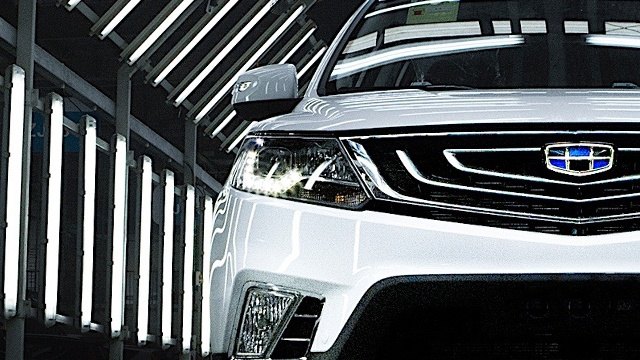
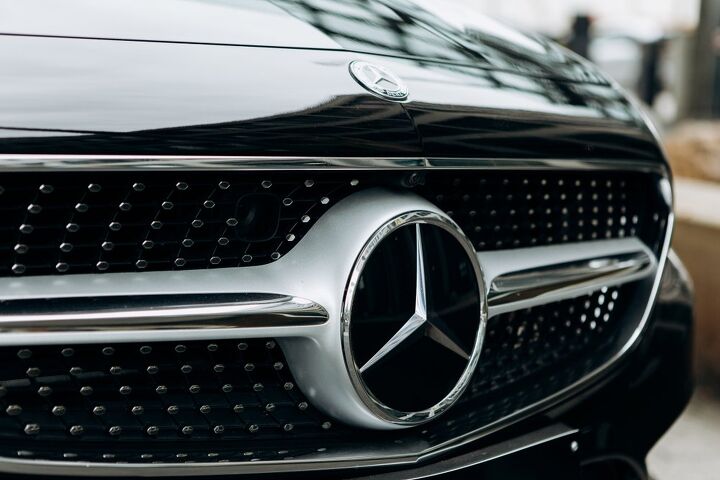
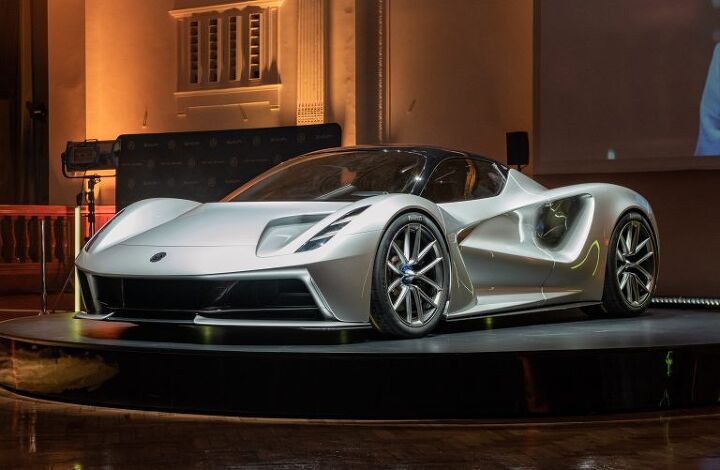


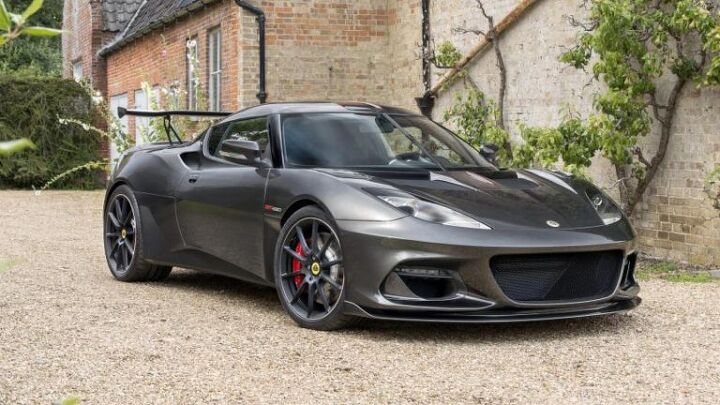
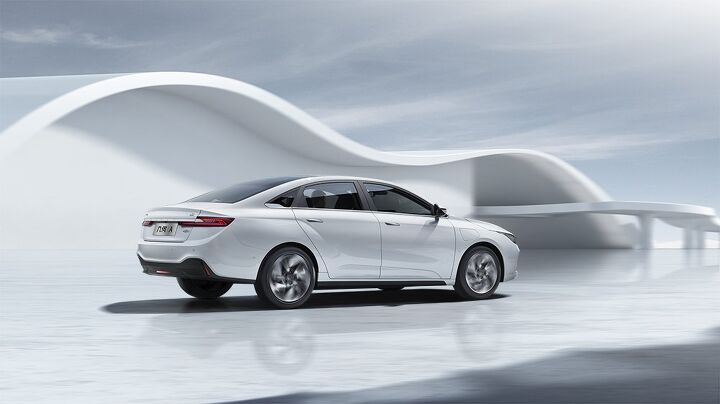


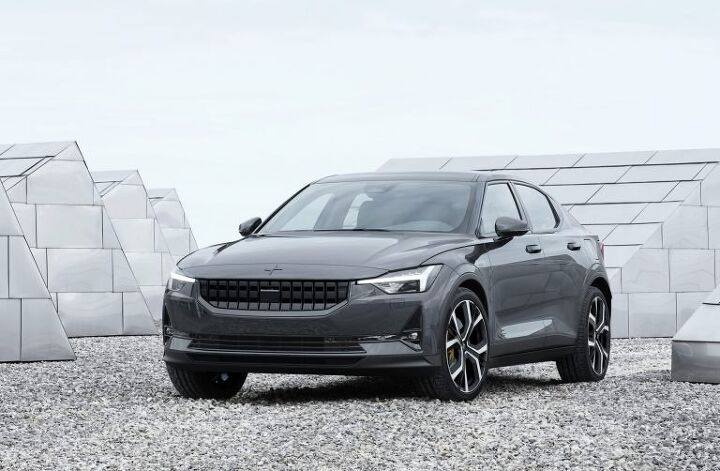




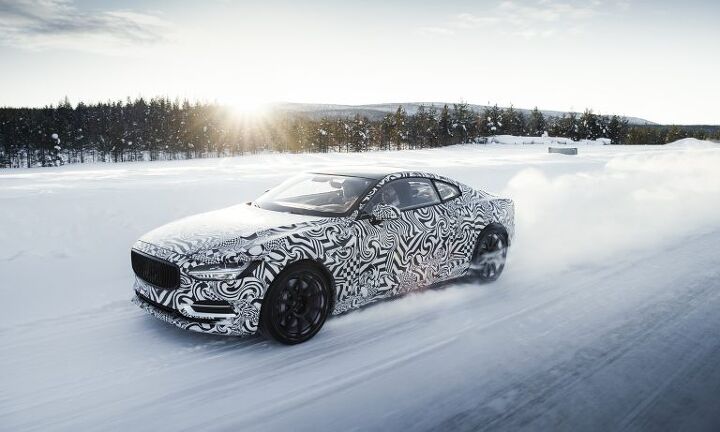












Recent Comments